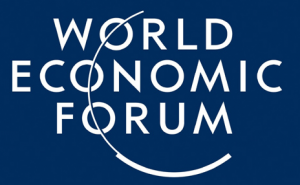 Finland has emerged as the most innovative country in the world, with Switzerland coming a close second, the World Economic Forum’s annual ‘Global Competitiveness Report 2014-2015’ says.
Finland has emerged as the most innovative country in the world, with Switzerland coming a close second, the World Economic Forum’s annual ‘Global Competitiveness Report 2014-2015’ says.
The report copied to the Ghana News Agency evaluates 144 of the world’s economies on various measures of innovation including the quality of scientific research institutions and spending on Research and Development to produce an overall global ranking.
Three other European nations are in the top 10 – Germany, Sweden and the Netherlands.
Asian nations are also prominent, with Japan, Singapore and Taiwan all taking top spots. Israel and the United States completed the top 10.
The report, which provides insight into the drivers of productivity and prosperity remains the most comprehensive assessment of national competitiveness worldwide, providing a platform for dialogue between government, business and civil society about the actions required to improve economic prosperity.
Competitiveness is defined as the set of institutions, policies and factors that determine the level of productivity of a country. The level of productivity, in turn, sets the level of prosperity that could be earned by an economy.
The different aspects of competitiveness are captured in 12 pillars, which compose the Global Competitiveness Index.
The overall Global top 10 performers based on agriculture and food security, arts and culture, economic growth and social inclusion, employment skills and human capital, environmental and resource security, future of the global financial system, future of Internet, gender parity, geo-politics, infrastructure, long-term investment and development and international trade and investment: Switzerland, Singapore, US, Finland, Germany, Japan, Hong Kong, the Netherlands, UK and Sweden.
The 35th edition emphasises innovation and skills as the key drivers of economic growth. While these increasingly influence competitiveness and the global economy tentatively recovers from the economic crisis, significant risks remain, resulting from a strained geopolitical situation, rising income inequality and the potential tightening of financial conditions.
It is therefore crucial to address these structural challenges to ensure more sustainable and inclusive growth. More than ever, cooperative leadership among business, government and civil society is needed to re-establish sustainable growth and raise living standards throughout the world.
The top 10 performers in Sub Saharan Africa are ranked on the global index with Mauritius clocking 39, South Africa- 56, Rwanda- 62, Botswana- 74, Namibia- 88, Kenya- 90, Seychelles Island- 92, Zambia- 96, Gabon- 106 and Lesotho- 107.
On the global index for Higher Education and Training, the top 10 position according to the index are: Finland, Singapore, the Netherlands, Switzerland, Belgium, United Arab Emirates, US, Norway, New Zealand and Denmark.
Hong Kong, Singapore, UAE, the Netherlands, Switzerland, Japan, Germany, France, Spain and the UK were the placements on the infrastructure index.
Source: GNA























